US consumers are generally wary of companies' collecting their personal data, but some are open to it—depending on their age, the transparency of the efforts, and what they get in return, according to a recent report from Software Advice.
Nearly three-quarters (74%) of the 385 adult Americans surveyed say they prefer that their data not be collected or used at all by companies. Of those respondents who are open to their data being gathered, the largest percentages are comfortable with brands' monitoring their likes/dislikes and collecting basic demographic information.
Very few consumers think it is appropriate for brands to collect their current location or contact information.
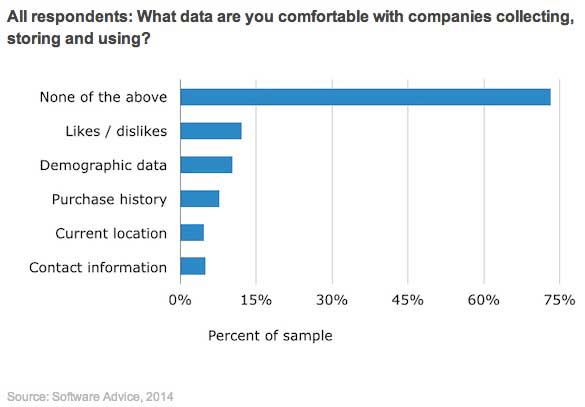
Respondents 25-34-years-old appear to be less opposed to data collection by companies, with only just over half (52.5%) saying they are opposed to it in all situations.
Conversely, older respondents appear to be far more averse to any type of data collection, with 81% of 55-64-year-olds saying they prefer none of their data be stored or put to use.
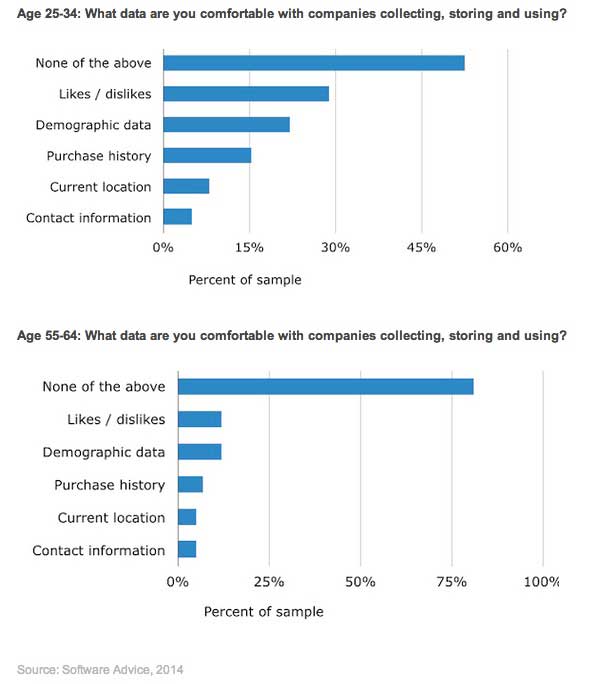
Below, additional key findings from the report.
Awareness
78% of respondents say they believe it is either "extremely common" (54%) or "somewhat common" (24%) for companies to collect customer data such as purchase history, age, and
likes/dislikes.
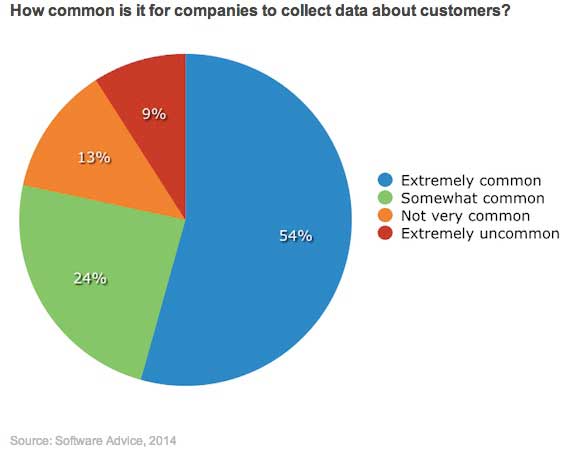
Transparency
- Asked whether they would be less bothered if companies would tell them exactly what data they were collecting and why, 30% of respondents say that they would be "a lot less bothered" and 16% say they would be "slightly less bothered."
- 25% say they would still be "extremely bothered" by a company's data collection practices regardless of transparency, and 16% would still be "somewhat bothered."
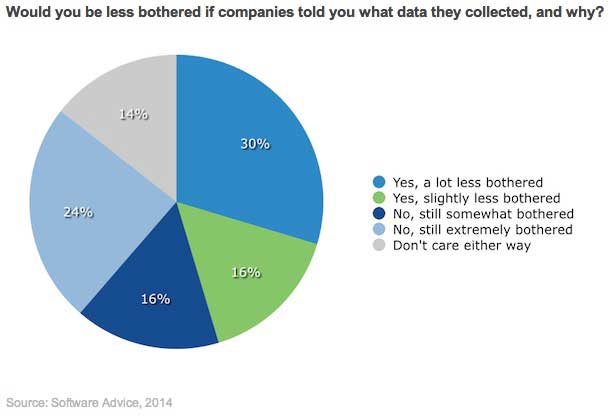
Rewards
- 71% of respondents say there are no acceptable ways for companies to use data they've gathered about customers.
- However, younger consumers are less likely to be adamantly against all uses: 44% of 18-24-year-olds believe there are acceptable situations for it.
- 25% of 18-24-year-olds say personalized customer rewards are an acceptable way for their data to be put to use, and 23% say offering personalized deals and discounts is acceptable.
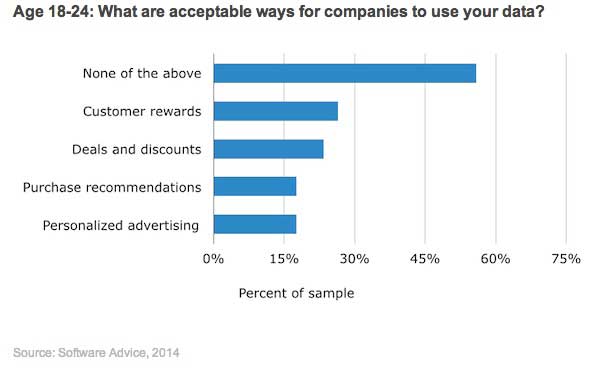
About the research: The report was based on data from a survey of 385 randomly selected adults living in the United States.




